Jesus, Socrates, the Joker and Psychedelics as Aporia
How Jesus Breaks and Re-sets our Broken Bones in the Sermon on the Mount
This week I've been working on one of the most famous parts of the New Testament, the Sermon on the Mount.
John Vervaeke is walking through his material in his new series "After Socrates" and he had a nice section on Aporia in Episode 3.
Socrates famously used aporia to break down the shallow knowing assumptions of his interlocutors. By challenging them with questions and comparisons he helped them see, often with frustration, that they didn't really know what they thought they knew. Aporia is a rhetorical device used to break assumptions, to raise doubt often in order to reset the mind and fill that new space with the thoughts and ideas of the speaker.
If you search for aporia on Youtube you'll get this video about the Joker in the Dark Knight.
The main weapon of the Joker is aporia. He unsettles Gotham's assumptions about the goodness of order and the city's ability to maintain it. In many ways he opens the door for the vigilante violence of Batman and the order he tries to re-instill outside the law.
In this way the Joker is fundamentally aporic. He uses it rhetorically and he functions that way in the Batman narrative. This is why he's one of the best counterparts for Batman to wrestle with.
One of the unexpected challenges in my journey in the last 5 years on YouTube has been the question of psychedelics and Christian conversion. I've bumped into many Christians who testify that taking these drugs was a factor in their conversion.
You can hear a great example of this in the conversation between Mikhaila Peterson Fuller and @WhaddoYouMeme .
Stories like these have given the drugs a "spiritual" reputation especially in an arena of un-deconstructed Cartesian dualism. This has been a puzzle for me that I've continued to work on in the back of my mind.
Generally speaking Christians have given these drugs a hard "no" as seen in this video with Jordan Peterson, Jonathan Pageau, Bishop Barron and John Vervaeke.
I think a helpful moment for me was the realization that these drugs have an aporic impact in the brain by breaking down the canalizations in the brain caused by events and behaviors. See Jordan b Peterson and Robin Carhart-Harris
Psychedelics are sort of a chemical aporia. They break established brain circuitry which leaves the user open to new formation. It might be bad formation or good formation but the key temperamental change is openness.
It's analogous to a broken bone that set naturally and improperly. The psychedelic-aporic function is to re-break the bone. The psychedelic can't, however, reset it.
The Beatitudes in the Sermon on the Mount have a similar aporic rhetorical function in this most famous and puzzling homily. See Craig Blomberg’s Commentary on Matthew.
Beatitudes are common in Israel's Wisdom literature but they tend to be just like you'd expect. They are generally pious and karmic.
Jesus' Beatitudes are disruptive. They are designed to both break the miss-set bones of this broken world and reorient us to God's surprising inbreaking in Christ to reset and heal this broken, upside-down world.
Understanding Jesus' aporic nature helps us to understand why he's had the impact he has over the last 2000 years. Tom Holland is better on this than just about anybody.

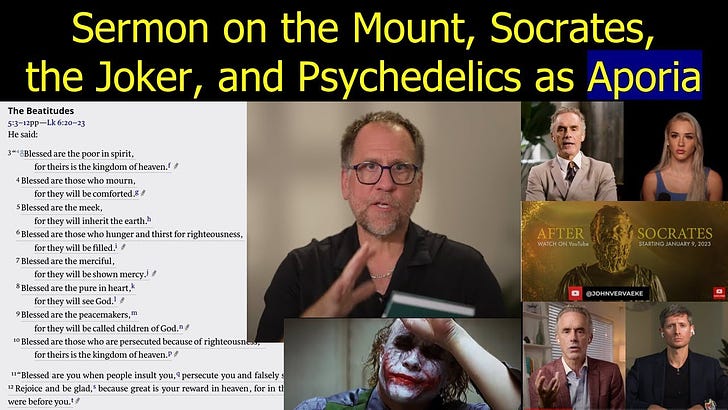



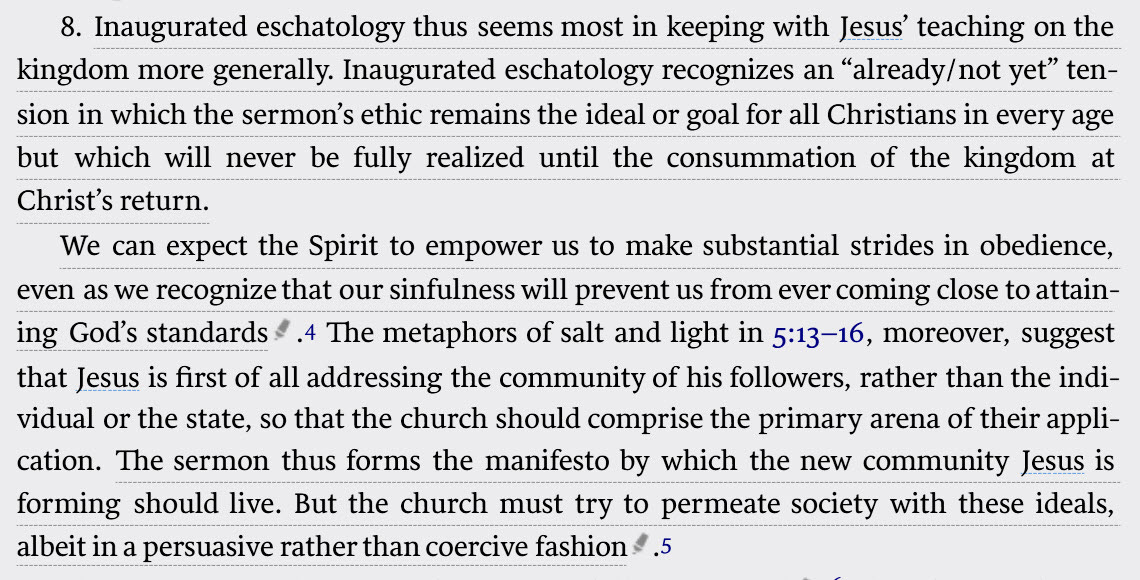
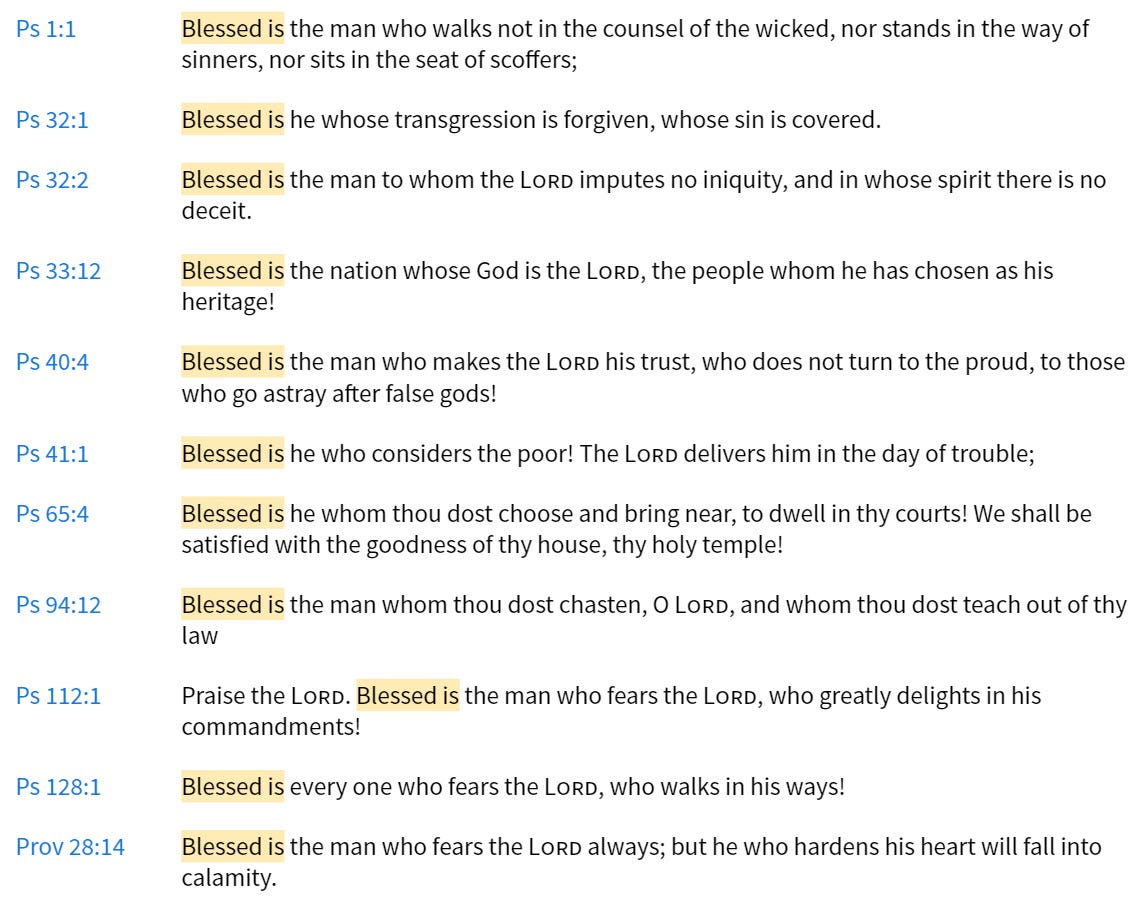
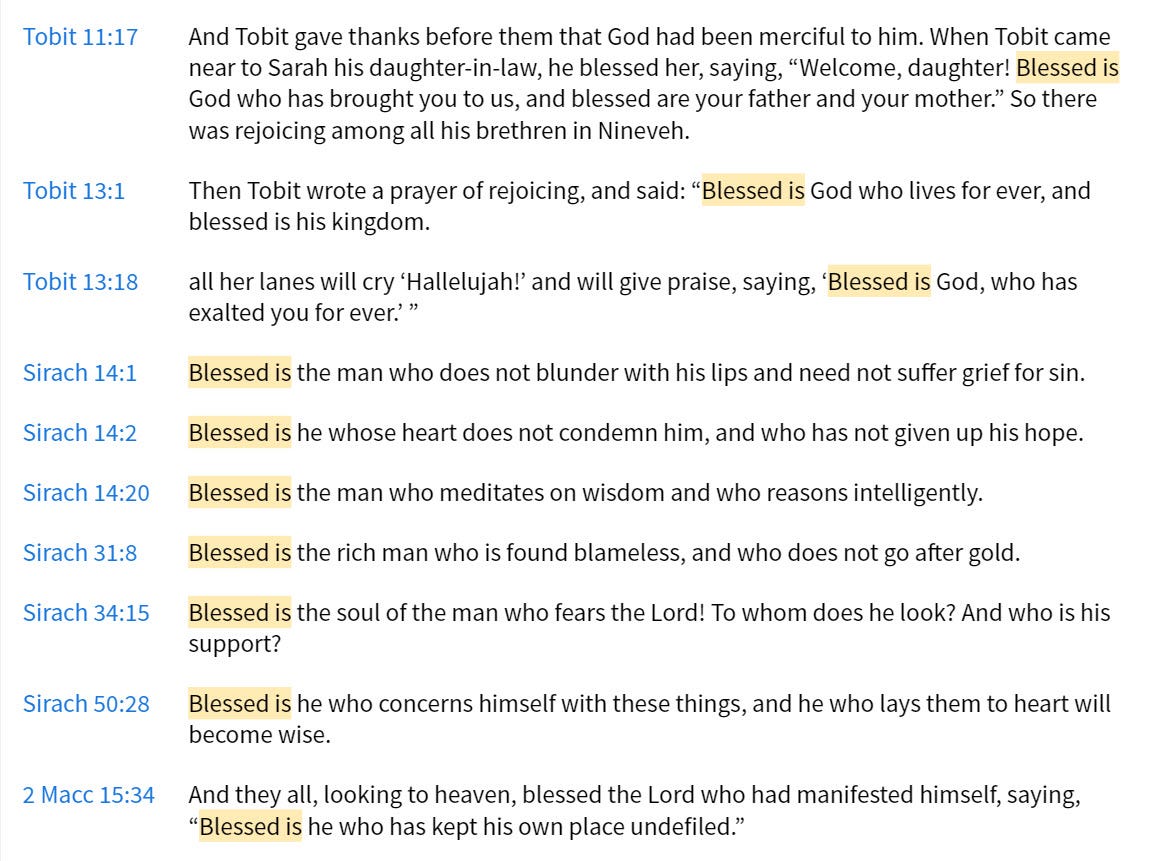
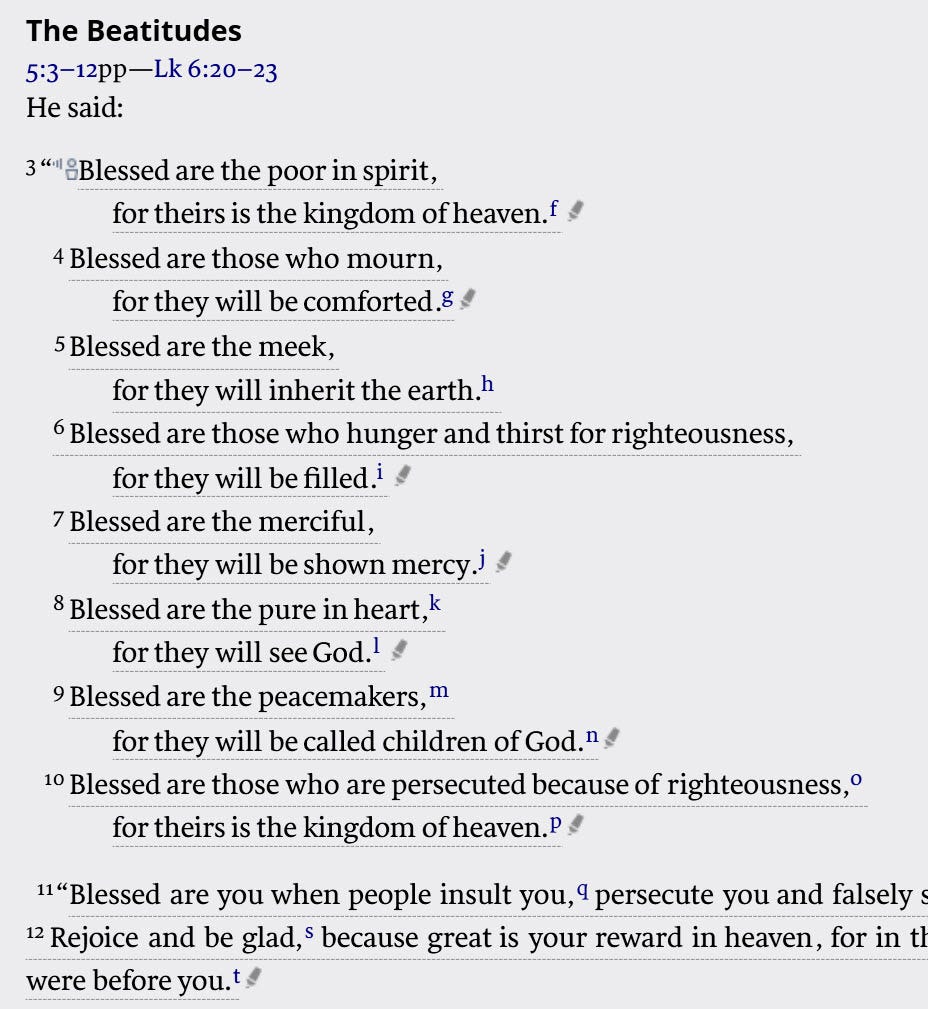
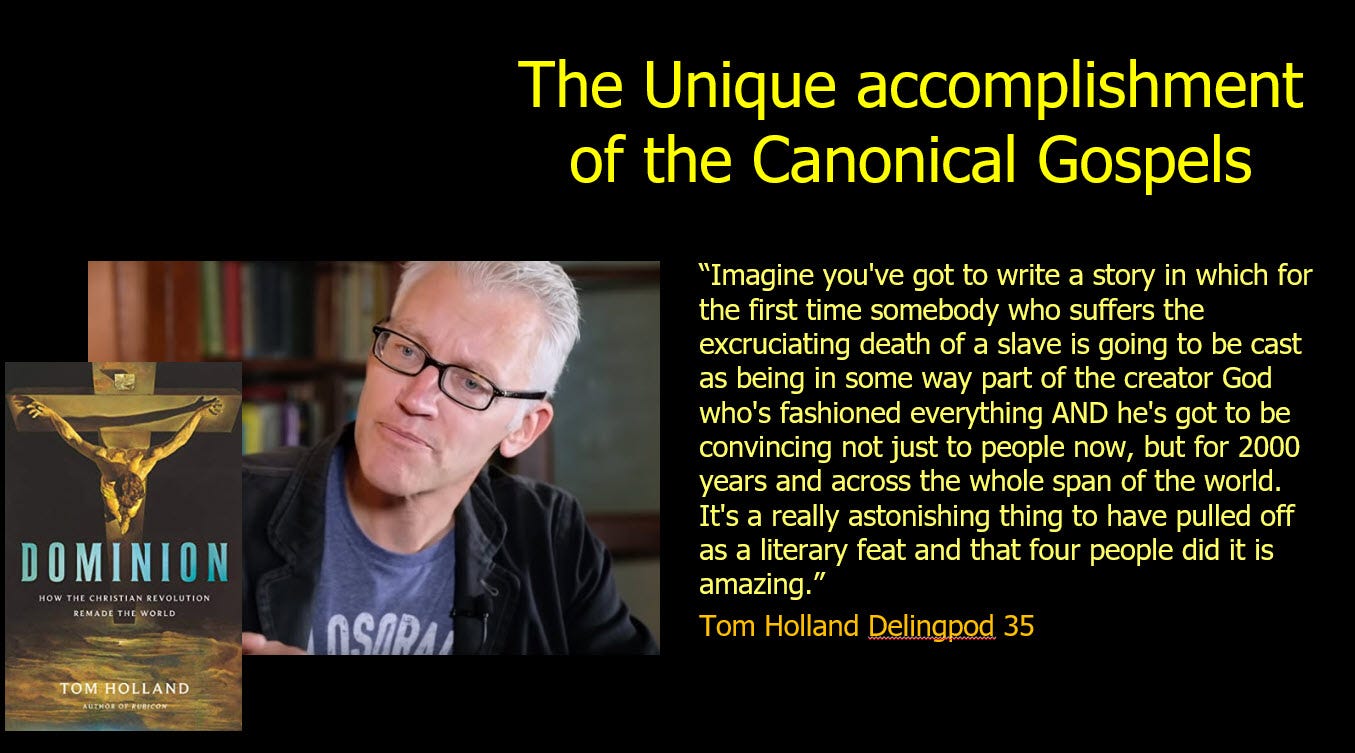
Really nice way to frame psychedelics.
Food for thought as always, Paul. Thank you! You should write here more! God bless.